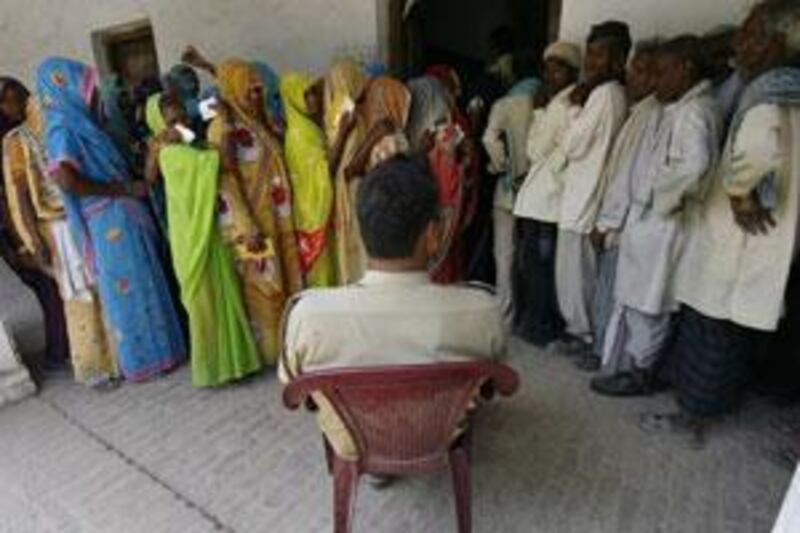The world's largest democracy starts voting today in a five-stage process that will require more than a month and involve 714 million people and 828,804 polling stations. At issue is the leadership of the South Asian giant as the economic crisis threatens to send millions back in to poverty after a decade of growth. Analysts predict neither the ruling Congress Party nor the opposition Hindu-nationalist Bharatiya Janata Party will win enough seats to rule alone.
In an early indication that voting could be tainted by violence, Maoist rebels in the eastern state of Jharkhand killed six soldiers who were on duty to protect polling stations. With a slew of regional and local parties expected to grab up to 50 per cent of the 543 parliamentary seats on offer, the final result will kick off an intense period of horse-trading as the big players rush to form a viable coalition. The prospect of a patchwork government with no united policy is a bleak one, with India facing a sharp economic downturn and increasing domestic and regional security concerns. "What we need is a government which will pull India through these difficult times," said political analyst Rasheed Kidwai. "The tragedy is that the influence of the main national parties has shrunk so much. The regional parties which are on the rise, are without the national outlook needed at this stage," Mr Kidwai said. Today's ballot will take in large swathes of northern and eastern India, including areas beset by a range of violent insurgencies involving tribal rebels, Maoist guerrillas and militants. In order to increase voter safety, more than two million security personnel will be rotated around the country over the five phases of balloting that end on May 13. Final results are to be announced on May 16. The leading candidates for prime minister are both veterans. The incumbent, Manmohan Singh of the Congress Party, is 76, while his main challenger, the BJP's LK Advani, is even older at 81. The only viable alternative to a Congress- or BJP-led coalition is provided by a loose alliance of left-leaning and regional parties called the "Third Front".
*With AFP





